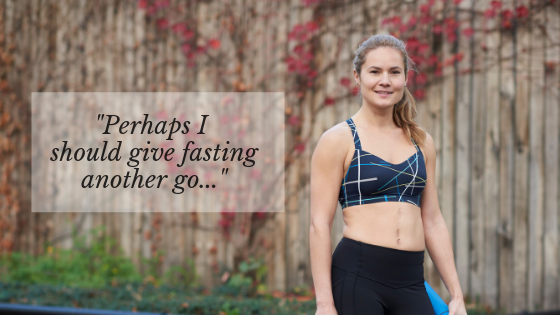Intermittent Fasting – Easier Than You Think?
Having just arrived in my home country Malaysia, a predominantly Muslim country, I’m rather pleased that the month of Ramadan is coming to an end — I find fasting quite a challenge.
During the month of Ramadan, food is not consumed during the hours of daylight, usually around 14 hours, (in Malaysia) for 30 days.
Fasting isn’t all that unnatural. Your ancestors evolved to thrive in situations when food was scarce. In the past few years, intermittent fasting – where food is not consumed for anywhere from 16 – 48 hours – has gained traction due to its incredible effects on disease and aging.
When I lived in Kuala Lumpur, I experienced what fasting was like during the holy month of Ramadan.
Not everyone does well with fasting. If you’re a busy entrepreneur or a student who needs to be high in a performance state all day, dealing with hunger can be a distraction, together with the lack of energy you may experience.
Although people do experience weight loss with intermittent fasting, it is less of a diet plan and more of a lifestyle choice to reap some incredible health benefits. Here are a number of intermittent fasting methods out there:
- 5:2: This method allows you to eat normally five days a week. The other two days are your fasting days, although you do still eat. Just keep it between 500 and 600 calories.
- Eat-stop-eat: With this one, you restrict all food for 24 hours, once or twice a week.
- 16/8: You eat all of your daily calories within a shortened period – typically 6 to 8 hours – and fast for the remaining 14 to 16 hours. You can do this every day, or a few times a week.

When you don’t eat any food for a set period of time each day, you do your body and your brain a whole lot of good. It makes sense from an evolutionary standpoint. For most of history, people were neither eating three square meals a day, nor grazing on snacks. Instead, humans evolved in situations where there wasn’t much food, and they learned to thrive when fasting.[1] Nowadays, we don’t have to hunt for food.
Switching to intermittent fasting expands your limits and boosts your performance in a number of ways. Here are some of the potential benefits of intermittent fasting:
- Boosts weight loss
- Increases energy
- Promotes cellular repair and autophagy (when your body consumes defective tissue in order to produce new parts)
- Reduces insulin resistance and protects against type 2 diabetes
- Lowers bad cholesterol
- Promotes longevity
- Protects against neurodegenerative diseases such as Alzheimer’s and Parkinson’s
- Improves memory and boosts brain function
- Makes cells more resilient
Like most biohacks, finding the perfect fasting diet takes some experimenting. Try a longer eating window at first, then gradually work your way up to fasting for longer periods. And always consult with your general practitioner if you have a medical condition that could interfere with your fasting results.
Fasting may feel difficult (especially for beginners), but it should never feel like torture. With the right fasting diet, you can regain control over your eating habits and reap all the benefits from this ancient biohack.
As for me, I try to keep a balanced healthy eating regime and listen to what my body needs. With yoga classes in the middle of the day, it’s tough to have a meal when I’m hungry, so I tend to snack and have a full meal around 3pm. With my low energy levels, good fats help me get through the day.
Creating a new habit or getting rid of an old habit takes discipline. It’s a process of learning and understanding, developing lasting healthy habits that work for you. It may be difficult to do these alone, so finding a group to support you through the journey helps you to stay positive, and progress through your choices.
My relationship with food has changed over the years, more so in the last couple of years where each meal has had to be carefully prepared, with enough protein, fats, and fibre to give me lasting energy throughout the day, not to mention tummy issues.
Don’t get me wrong, I still get cravings, which are usually foods like pizza, cheesecake and believe it or not, crunchy nut cornflakes, but I have these in moderation. And I deal with the consequences of feeling slightly sluggish the next day.
What lifestyle choices or healthy habits have you made with food, and what differences has it made to you?
I would love to hear from you.
Rita x
References
[1] https://www.sciencedirect.com/science/article/pii/S1568163716302513
.







